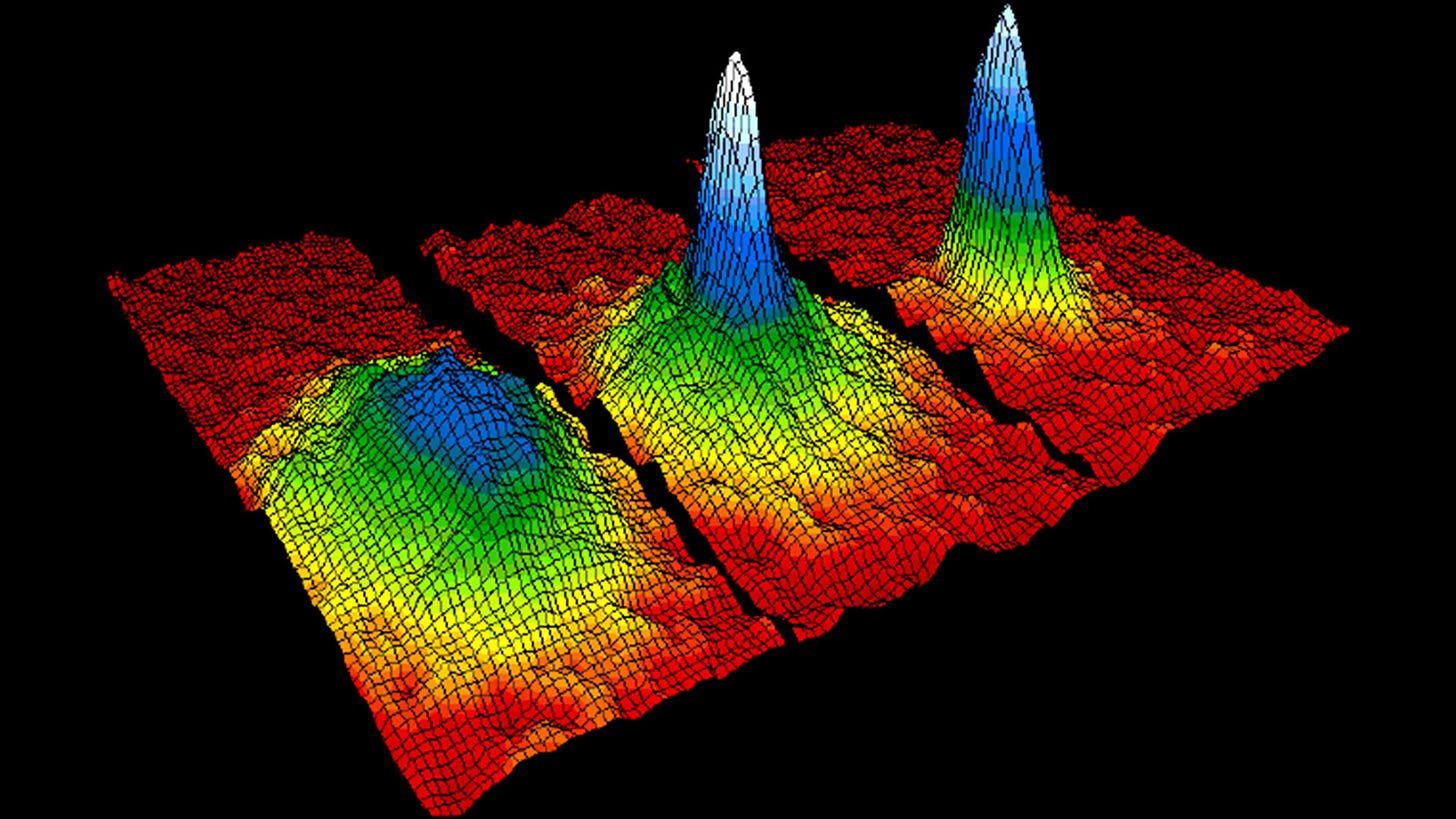
Whether a song pops out of my head, or comes via some mysterious otherland I can’t identify, it makes itself known. For me it’s like hearing a train coming down the track from far away - lyrics, arrangements, production done, roaring into existence.
I have maybe 5 or 10 seconds to grab it before it streaks by, on its way to another songwriter. When these things happen, I’m both elated and frantic, because I usually can’t catch them. But they’re wonderful, and I listen, hoping some other songwriter has successfully snared it. It hasn’t happened yet, but if it does, I’ll know that ideas do travel through the ether. They may not have mass in that form, but they have some serious charge.
Is a song a song if no one hears it? Unless you’re one of those amazing people who can read a score and hear it in its entirety, music lives, for the rest of us, when it’s played.
Think about that - it doesn’t exist unless you hear it. No mass or, very very tiny physical mass. It acts on molecules in the air, bouncing them off one another to produce sound waves our ears pick up and and our brains translate into music.
The song exists only as long as you hear it. When it’s done, it’s gone. I find this so fascinating - this is a truly temporal art. You could say that it gets embedded in your neuronal network (if it’s a good song, or a truly annoying one) creating an echo of that song that lives on in your brain. But it’s a recording, not the song itself. So, where did the song go?
(Partly) music is MATH. If I’d only heard that as a child, I might have paid better attention in school. Stripped down to its bare essentials, music is the coordinated alignment over time of specific frequencies that we interpret as having meaning. I don’t say that to lessen its impact or importance.
But beyond that, what makes it music? Why do some songs capture the world and others die quiet deaths, sinking to the depths because they’re never played?
Why do we need it?
I’ve thought, from an early age, that music is a far more complex language than the spoken word. That’s no slight on writers, but I do think there’s a difference between hearing music or the spoken/read word. We haven’t yet invented all the words we need to describe everything we encounter. Instrumental music is all there, we just don’t totally understand it yet. We love it, roll around in it - it’s like hearing a foreign language that we find beautiful, but cannot translate. All sound, no verbal meaning.
Listen to people describing music compared to describing other things. It’s different. Something comes over people when they talk about music, and I believe it’s because it’s so close to the root of who and what we really are. Which is that we are ourselves composed of frequencies, and we resonate or clash with other frequencies.
With words + music the listener is functioning on two levels. The score, that vast landscape of frequencies that move us, and then the translation into thought of what the words themselves mean. I’d love to find any studies that have mapped the brain of someone listening to instrumental music versus music with words. I know that my brain reacts differently depending on which one I listen to. It’s like instrumental music lets the listener exist on a primordial plane, feeling without thinking, but when adding words, it kicks it up a notch, layering new meaning over the top of that base layer. Which can lead to some really interesting juxtapositions of intent and misdirection, like Maxwell’s Silver Hammer. Happy little ditty, with very dark words sweetly sung over the top.
“Bang, bang Maxwell’s silver hammer made sure… she was dead…”
It may be that the language of music is already embedded within us, and needs no explanation. We feel it, we don’t dissect it. It’s often the common denominator between peoples and cultures, when everything else is misunderstood or distrusted, it gets through on a deeply personal level. It can turn people into friends when everything else has stopped working.
That’s why we need music. It might be humanity’s greatest love - the arms that hold us when we just can’t go on, the rally cry that pulls us to our feet. Its impact stretches centuries. Tell me this doesn’t lift your spirits…
If there are so many states a song can occupy, whether in the mind and soul of the creator or interpreter, reduced to ink spots on a page, when it’s played, or if lodged in a listener’s mind, then perhaps it’s always alive. Maybe the thought of it alone sparks it to life.
In that sense, it’s never done. Living things are never done, they evolve, and if they cease evolving, they die. Songs get rediscovered and reinterpreted, bits and pieces of their DNA wind up in other songs. It’s sonic evolution on a global scale, and it always amazes me that people continue to come up with new, original work with just twelve notes (or 24 halftones for some of us). Music is reignited in peoples’ imagination through thoughts and memories of other things. Songs change depending on where and with whom one is listening.
I’d like to think songs are living entities, but if neglected, they might tumble off the cliff into calcification, inertness. Robert Plant is constantly reimagining Led Zeppelin songs, which I’ll bet really infuriates the faithful, but I think it’s a wonderful idea. Listen to this interpretation of Ramble On.
Songs, good songs, can shapeshift in endless ways and still hold on to their DNA. So no, they’re never done. We’re never done, we’re always evolving, sometimes up and sometimes down, but movement is essential for all life.
Including music.
* * * * * * * * * * * * * * * * * * * * * * * * * * * * * * * * * *
A post-post -
I have to say, I have this thing about physics, especially quantum physics. But I hasten to add that I am an unqualified neophyte when it comes to understanding it. Still, it hasn’t dampened my fascination. I watched a sci-fi movie on Netflix the other night called Spectral, where the plot revolved around something called the Bose-Einstein Condensate (BEC). Yes, they took liberties with what it could do, but still, it tweaked something in my brain. And hopefully by the end of this post-post, I’ll have successfully drawn a line between physics and music.
CAVEAT - I know there are physicists aboard Substack, and you may take issue with my description. I can only say that, without the benefit of a physics or mathematics degree, this is how it struck me. And I’m more than happy to be corrected.
The universe is divided into two types of sub-atomic particles: bosons and fermions. Fermions are things like protons, neutrons, quarks (which make up the former two) electrons, and a host of other particles. They are what make up the mass that we all play with and live in. Bosons, which include photons, muons, Higgs and two others (five at last count) have little or no mass, depending on which one you pick, and are basically the forces that act on the fermions, enabling things like the weak and strong forces and gravity. Can’t have one without the other, nothing would hang together if it weren’t for bosons. (For those who love a good mind bender there’s this other description…) Bosons also like to live in a quantum state, which means they can be in more than one place at the same time. They also don’t like to obey the Pauli Exclusion Principle, which says two different particles can’t be in the same place. So what if there was only ONE boson, but everywhere all at once??
Both fermions AND bosons can form a BEC under certain conditions, when chilled down to as close to absolute zero as we’re able to do here on Earth. The condensate is considered a different state of matter, as opposed to liquids, solids, gases and plasma. When properly chilled, they sort of lose their inhibitions about being individual atoms, and they can flow over and around one another, clumping together to form a “super atom”.

And beyond that, well, beyond that my mind isn’t able to hold the mathematics required to dive further in.
You may be rightly asking, what the hell does this have to do with music? Don’t be mad, it doesn’t directly, I’m just so fascinated by this I had to share. But, ok, it does…peripherally.
Ever heard this? It’s really worth listening to. Although there’s no sound in space because there are no air molecules for the waves to bounce around, NASA took spectral data captured by telescopes and assigned sonic frequencies depending on wavelength. Frequencies are the primordial signature of what has happened and what is happening out there. All around us.
Bosons create the field that fermions play and bounce around in. Fermions, when vibrating, create frequencies. When passing through air, those frequencies become sound.
Vibration is the hallmark of existence. Everything vibrates, from sub-atomic particles all the way up to galaxies. WE vibrate, Brownian motion jiggles our atoms in the dance of life. Our eardrums respond to soundwave vibrations, converting them to sound and music.
Listening to that NASA recording makes me think that frequency, which creates sound, and from sound, music - may be the fundamental expression of life itself. It broadcasts that it IS.
And so, on the journey from the deepest reaches of space, all the way down to you or I listening to a song, the underlying components are the same. We’re bathing in sound, in music, all our lives. What better unifier to think on?



Every single thing you wrote about songs—grabbing them, capturing them, writing them, not missing them as they float past—YES, my experience exactly. That channeling from another portal, realm, person, muse, I dunno, but it's glorious when you're able to wrap your mind and creativity around that ephemeral, fleeting ribbon of inspiration. I love that process, actually; it always amazes me.
As for the quantum physics stuff: I read it, my head exploded, I have no response other than that. :)
I’ve been bathing in sound my entire life. Maybe that’s why I’m so wrinkly.